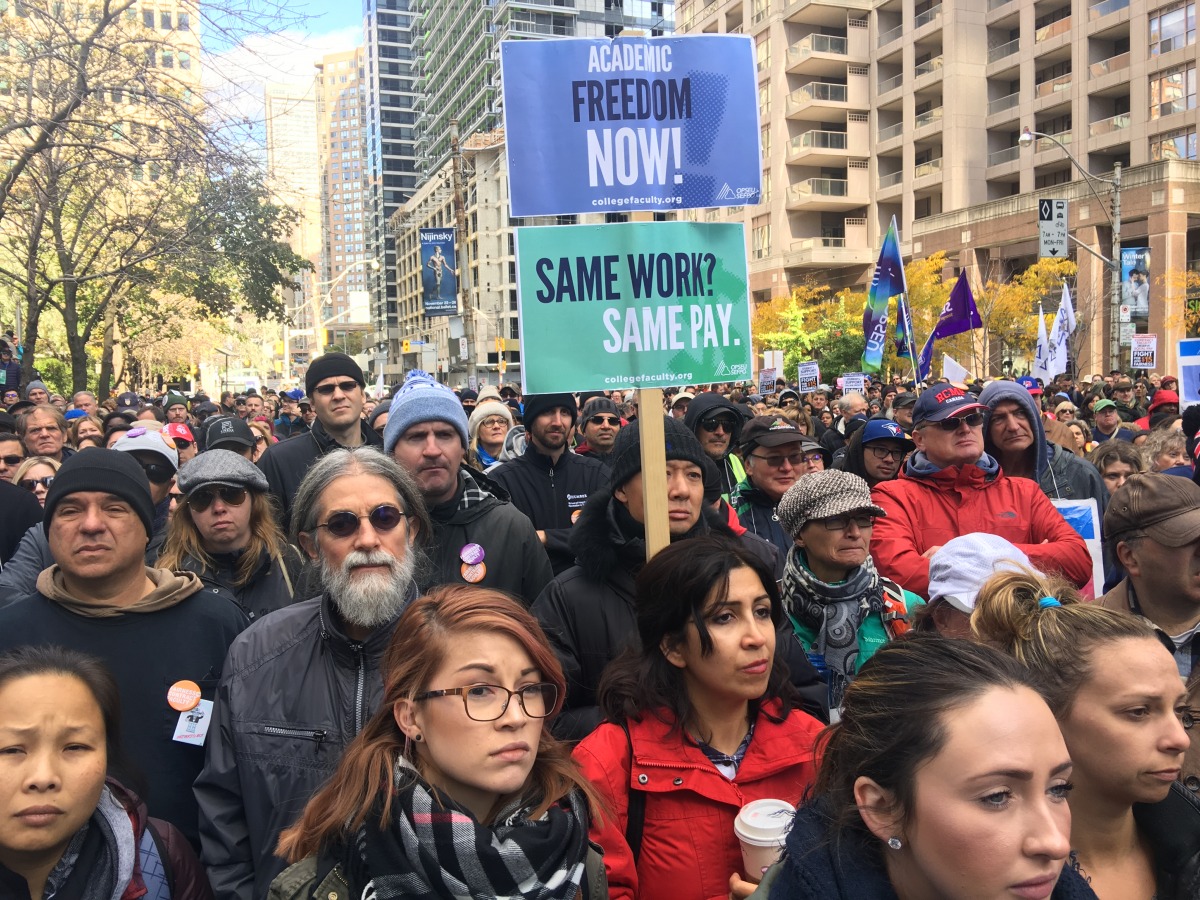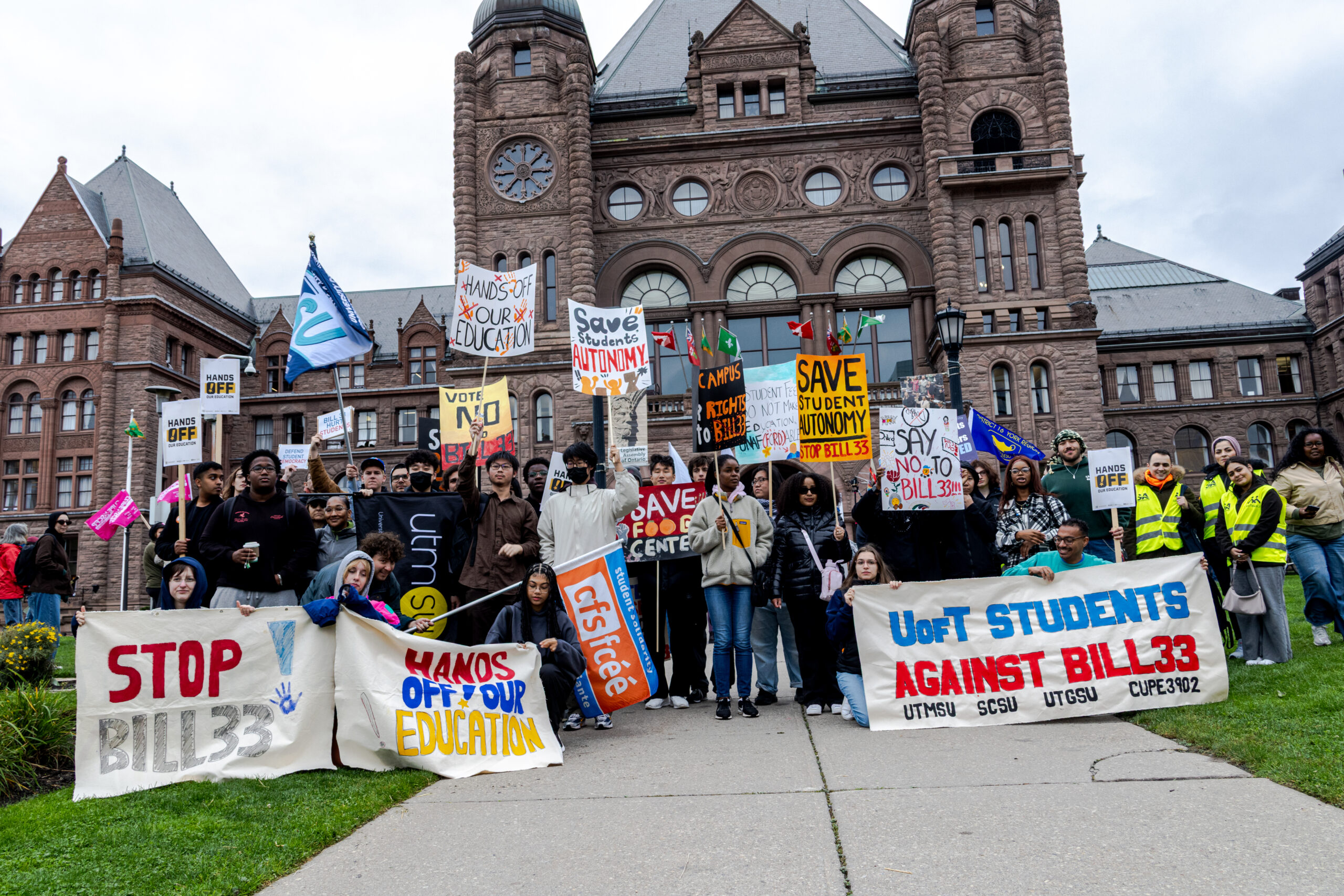Union calls for employer to return to the table “disingenuous,” says spokesperson for the colleges
Striking college faculty rallied today in front of the Ministry of Advanced Education and Skills Development to call on minister Deb Matthews to pressure the colleges back to the table.
Talks between Ontario Public Service Employees Union (OPSEU), who represents faculty, and the College Employer Council, who represents Ontario’s 24 public colleges broke down on Oct. 15. Now in the second week of the strike, there are no talks between the two sides scheduled.
JP Hornick, chair of the faculty union bargaining team, said that the ministry has a lot of influence with what happens in the college system.
“They do have a role to play in pressuring council to actually behave, come to the table and engage in true negotiations rather than try to enforce a deal that would actually decimate the system,” she said.
In a statement, Deb Matthews, the minister of advanced education and skills development, said that the government respects the bargaining process and “urged both parties to return to the table and find a solution that allows students to return to the classroom where they belong.”
“We are optimistic that the two parties will return to the table to work to reach a successful, negotiated settlement that is in the best interests of all parties, with a focus on students and their learning,” Matthews said.
David Scott, a spokesperson for the College Employer Council, said that the colleges share Matthews’ frustration.
“We do want to get back to the table and resolve the strike and OPSEU knows how this gets resolved,” he said. “We’ve been very clear and consistent and they’ve heard our message repeatedly throughout bargaining. They know exactly what our position is.”
The council has said that the union’s proposals would cost an extra $250 million annually and eliminate thousands of contract faculty jobs.
Scott said that OPSEU stating that the colleges don’t want to go back to the table is “disingenuous.”
“They simply want the colleges to accept their positions and we’ve been very clear since July, when they first tabled these positions, that they weren’t the basis for a settlement.”
OPSEU has maintained that this is an “aspirational” round of bargaining, meant to improve the college system for faculty and students.

Nadine Sookermany, a contract professor at George Brown College said that she has been “piecing together contracts” over the last 12 years. Photo: Lidianny Botto / The Dialog
Nadine Sookermany, who is a liberal arts and science professor at George Brown College, spoke at the rally. Sookermany said she gave a speech because she wanted to tell her story of “piecing together contracts” over the last 12 years.
“The idea that one is connected to an institution like George Brown College creates the impression that we are secure, that we have good jobs,” Sookermany said. “And the idea of good job is really not enough. Decent work is what we need, equal pay for equal work is really what we’re looking for.”
Over 12,000 college faculty have been on strike since Oct. 16.
The union’s last offer included demands that there be a 50-50 ratio of full-time to part-time faculty, better job security for partial load faculty and academic freedom for faculty.
The College Employer Council’s last offer included a 7.75 per cent raise over four years, new salary caps for faculty, as well as “improved conversion of contract faculty to full-time positions, a plan to respond to Bill 148 when it becomes law, more faculty autonomy over personal workloads (and) enhanced benefits.”
The last strike by college faculty in Ontario was in 2006 and lasted for 20 days.
With files from Lidianny Botto and Megan Kinch


